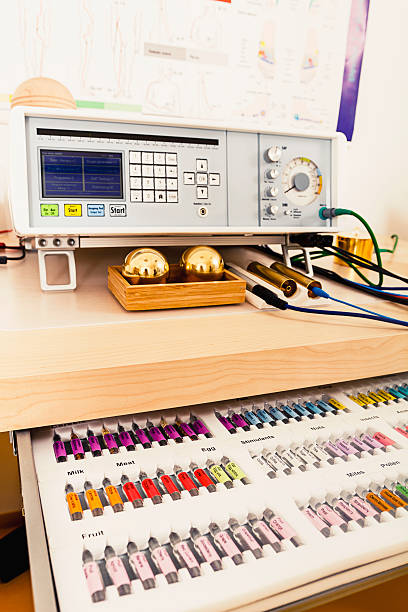Introduction:
Bioresonance therapy was invented (in Germany) in 1977 by Franz Morell and his son-in-law, engineer Erich Rasche.
Bioresonance is a form of holistic diagnosis and therapy. It is claimed that the bioresonance devices used in the therapy can study the energy wavelengths coming from cells within the body and that the frequencies of these wavelengths provide information about the health of the body.
Bioresonance is a non-invasive therapy which involves placing electrodes on your skin for diagnosis and treatment. The electrodes are connected to a Bicom machine which checks the energy wavelengths coming from your body, and then counteracts bad frequencies by restoring the optimum balance.
Bioresonance is based on the idea that unhealthy cells or organs emit altered electromagnetic waves due to DNA damage.
Practitioners believe they can interpret the results obtained from the devices which can then be used to diagnose diseases or adverse medical conditions. Some practitioners also claim to use the results to treat the diagnosed conditions by using the same electromagnetic frequencies to create healthy “resonance” within the body’s cells.
Proponents of bioresonance believe that detection of these waves can be used to diagnose disease, and changing these waves back to their normal frequency will treat disease.
Bioresonance therapy helps in the following conditions. These include:
- Smoking cessation
- Abdominal pain
- allergies and related conditions, such as eczema and asthma
- rheumatoid arthritis
- cancers
- fibromyalgia
- overtraining syndrome
To date, studies on bioresonance haven’t found any side effects. It has generally been called a painless procedure.
The biggest risk is that using bioresonance could stop people from receiving other, evidence-based treatments. If bioresonance doesn’t work, this could have a negative effect on health outcomes.
Conclusion:
While some small studies show positive effects from bioresonance, these are limited. Although bioresonance most likely has no negative side effects, it should not be used as a first-line or only treatment for any condition.
